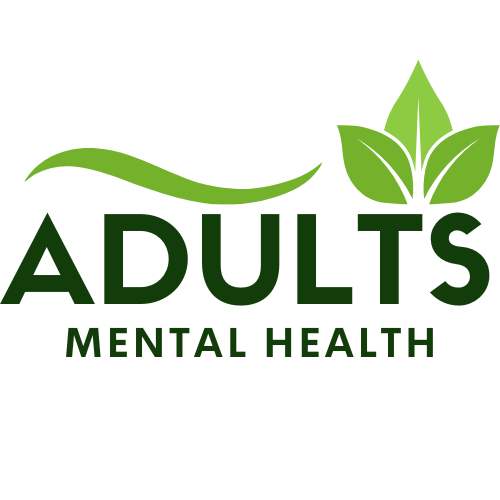Family Supports: An Important Part of Mental Health Recovery
Published on July 18, 2025 by Your Name
Why Family is Important in Mental Healing
When we are coping with life’s seismic waves, the people who know us best can make all the difference. For mental healing, family support is more than a source of emotional solace — it’s an essential part of recovery. When you are dealing with anxiety, depression, trauma, a functioning supportive family can provide a nurturing environment for growth. The following article takes a deep dive into the ways that loved ones contribute to mental wellness, and presents real-world examples and practical guidance for why family support is so formidable. Here I want to discuss how families can nurture resilience and support sustained recovery.
Family Support Makes Big Difference in Mental Health Recovery
Family support serves as a life line, providing emotional, practical, and at times, physical help. Studies have shown that strong social ties, especially if they come from family, can ease stress and promote mental health. Here’s how:
Emotional Validation and Stability
- Nonjudgmental listening: When family members use active listening, it validates all feelings and limits feelings of aloneness.
- Encouragement: Simple phrases such as “You’ve got this” can help to strengthen confidence when times are tough.
- Safe space: A loving family is a place where someone can feel safe to share his or her difficulties in life.
Example: After years of struggling with anxiety, Sarah, a 28-year-old, found comfort in attending her weekly family dinners. The non-judgmental listening of her parents helped her work through her fears, making therapy more effective.
Practical Support for Daily Challenges
Families can become the tangible helpers, giving children tools to help bear the burden of their disturbed mental health:
- Doing: Accomplishment or helping out with a chore or appointment feels destressing.
- Supporting treatment: Families can encourage loved ones to adhere to therapy or medication.
- Offering resources: It says something to share about mental health services — that you care enough to share about resources and that you believe in the person’s ability to get help.
Case Study: John, a military veteran with PTSD, pressured his sister into accompanying him to therapy sessions. He felt supported with her there – a support that was a positive influence on his engagement in treatment.
The science behind family support and mental health
Research advocates the importance of families in mental recovery. A 2020 study in The Journal of Clinical Psychology reported that patients with strong family involvement were 30 percent more likely to continue with mental health treatment. Why? Families provide:
- Lower Stress Hormones: Positive interactions reduce levels of cortisol.
- Greater capacity to overcome hardship: Encouraging and nurturing families ameliorate their members’ experiences of adversity.
- Belonging: Feeling part of the group alleviates loneliness, a big component of depression.
In making kids feel safe and seen, families become a buffer against mental health problems.
How Families Can Help a Child Heal Mentally
Being supportive isn’t always intuitive. Here are some tangible ways families can support loved ones’ healing:
1. Educate Yourself About Mental Health
Families are starting to figure out what conditions like depression or anxiety look like and how best to respond.
- Educate yourself with reliable sources such as the National Alliance on Mental Illness (NAMI).
- Participate in workshops or support groups on mental health.
2. Practice Active Listening
- Don’t be interrupting, or trying to provide fast solutions.
- Employ phrases such as “I hear you” or “That sounds really tough” to express empathy.
- Eye contact/ Walk with your eyes up and open posture.
3. Encourage Professional Help
- “Gently prompt toward getting therapy or counseling without forcing it.
- Volunteer to help look for a therapist or to give rides to sessions.
- Destigmatize help-seeking by telling positive tales about mental health treatment.
4. Set Healthy Boundaries
- Supporting doesn’t mean you sacrifice your own mental health.
- Don’t be shy discussing what you can and cannot control.
- Get help for yourself. Join a caregiver support group, for example.
Example: Maria’s family started doing a “mental health check-in” in which they talked about everyone’s mental state every week. It made them stronger as a unit, and it served as an effective way for Maria to get a handle on her bipolar disorder.
typical dilemmas and how to resolve them
It’s not always an easy ride, supporting a loved one’s mental recovery. Here are some common obstacles and some ways to manage they them:
Challenge: Feeling Helpless
Solution: Work toward small, regular actions, such as touching base every day or offering small forms of assistance.
Challenge: Miscommunication
Solution: Communicate concerns without blame by using “I” statements (for instance: “I feel worried when you isolate”).
Challenge: Resistance to Help
Problem: “I’m going through a tough time and he says I can turn to him, but he never goes out of his way.” Solution: Wait and express consistent care, but do not overdo it.
The Ripple Effect of Family Help
Family support has a role in mental healing that is not confined to the individual. When families pull together, it deepens bonds and encourages a culture of compassion. Communities gain, as well — with the families so open to discussing their own struggles with mental illness, there is reduced stigma associated with mental health issues, which leads some to seek the help they need. How about a world where every family is a fortress of support to their family members? That is the strength of collective care.
First, They Erased My NameThis article is part of the Debatable newsletter. You can sign up here to receive it Tuesdays and Thursdays.None of us understands how it feels to heal from mental scars that we sat like a bomb in the meeting with the family.
Frequently Asked Questions
What if I need mental health care, but my family doesn’t get it?
Gently educate them with resources such as books or online articles from reputable sources (NAMI or Mayo Clinic). Patience is key.
A loved one refuses help. How do I help?
Demonstrate ongoing care through small acts, like spending quality time together, and avoid putting them under pressure. Slowly & gently hint, suggest getting professional help.
Can family support replace therapy?
No, the support of our families is an addition to professional treatment, not a replacement for it. That’s where therapy comes in, offering tools that families may not have.
How can I avoid burnout when helping someone?
Establish limits, focus on self-care and perhaps join a caregiver support group to trade stories and ideas.
Conclusion: A Stronger Future Together
Family support is an integral point in mental healing. Whether by offering emotional reassurance, making it known that the person is loved in recovery too to things such as in-home supportive services and professional intervention, the family has a lot of power in how they can help guide the person on their way toward healing from their addiction. With some education, empathy and boundaries, families can create a nurturing environment that allows for resilience to flourish. If you are on the supporting end of the dynamic Howes describes, know that your efforts do make a difference, even if progress feels excruciatingly slow.
Do you like our Article about family support in mental healing ?
Takeaway: Have you ever been amazed by effective family support in mental health recovery? Tell us in the comments below, or check out our other mental health resources for additional advice on how to support loved ones.

